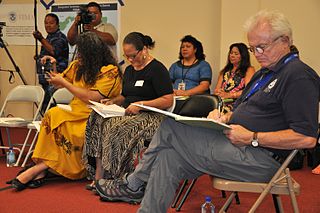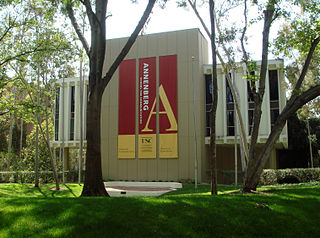Others
- Indicação de Proveniência Regulamentada (Indication of Regulated Origin), Portuguese wine designation
IPR may refer to:

Public relations (PR) is the practice of managing and disseminating information from an individual or an organization to the public in order to influence their perception. Public relations and publicity differ in that PR is controlled internally, whereas publicity is not controlled and contributed by external parties. Public relations may include an organization or individual gaining exposure to their audiences using topics of public interest and news items that do not require direct payment. The exposure is mostly media-based, and this differentiates it from advertising as a form of marketing communications. Public relations aims to create or obtain coverage for clients for free, also known as earned media, rather than paying for marketing or advertising also known as paid media. But in the early 21st century, advertising is also a part of broader PR activities.

A think tank, or policy institute, is a research institute that performs research and advocacy concerning topics such as social policy, political strategy, economics, military, technology, and culture. Most think tanks are non-governmental organizations, but some are semi-autonomous agencies within government or are associated with particular political parties, businesses or the military. Think-tanks are often funded by individual donations, with many also accepting government grants.
The United States Senate's Special Subcommittee to Investigate the Administration of the Internal Security Act and Other Internal Security Laws, 1951–77, known more commonly as the Senate Internal Security Subcommittee (SISS) and sometimes the McCarran Committee, was authorized by S. 366, approved December 21, 1950, to study and investigate (1) the administration, operation, and enforcement of the Internal Security Act of 1950 and other laws relating to espionage, sabotage, and the protection of the internal security of the United States and (2) the extent, nature, and effects of subversive activities in the United States "including, but not limited to, espionage, sabotage, and infiltration of persons who are or may be under the domination of the foreign government or organization controlling the world Communist movement or any movement seeking to overthrow the Government of the United States by force and violence". The resolution also authorized the subcommittee to subpoena witnesses and require the production of documents. Because of the nature of its investigations, the subcommittee is considered by some to be the Senate equivalent to the older House Un-American Activities Committee (HUAC).
Iowa Public Radio is non-profit entity that operates a radio network in the U.S. state of Iowa that combines the operations of the National Public Radio member stations. They broadcast programs from National Public Radio, Public Radio Exchange and American Public Media, along with local content on weekends and evenings.
The Institute of Pacific Relations (IPR) was an international NGO established in 1925 to provide a forum for discussion of problems and relations between nations of the Pacific Rim. The International Secretariat, the center of most IPR activity over the years, consisted of professional staff members who recommended policy to the Pacific Council and administered the international program. The various national councils were responsible for national, regional and local programming. Most participants were members of the business and academic communities in their respective countries. Funding came largely from businesses and philanthropies, especially the Rockefeller Foundation. IPR international headquarters were in Honolulu until the early 1930s when they were moved to New York and the American Council emerged as the dominant national council.

The USC Annenberg School for Communication and Journalism comprises a School of Communication and a School of Journalism at the University of Southern California (USC). Starting July 2017, the school's Dean is Willow Bay, succeeding Ernest J. Wilson III. The graduate program in Communication is consistently ranked first according to the QS World University Rankings.
The Chartered Institute of Public Relations (CIPR) is a professional body in the United Kingdom for public relations practitioners. Founded as the Institute for Public Relations in 1948, CIPR was awarded Chartered status by the Privy Council of the United Kingdom in 2005 and added "Chartered" to its name. As of late 2012, CIPR had 10,095 members. The association provides training and education, publishes a code of conduct and hosts awards and events. It is governed by a board of directors led by a president who is elected each year.
Angelo Falcón was a Puerto Rican political scientist best known for starting the Institute for Puerto Rican Policy (IPR) in New York City in the early 1980s, a nonprofit and nonpartisan policy center that focuses on Latino issues in the United States. It is now known as the National Institute for Latino Policy and Falcón served as its president until his death. He was also an Adjunct Assistant Professor at the Columbia University School of Public and International Affairs (S.I.P.A.).
The IPR-Helpdesk is a project funded by the European Commission (EC) and a source and guide to patent information. The project was launched in 1998 to be a central reference point for intellectual property inquiries and advice throughout the European Union. The IPR-Helpdesk is a project implemented by "a European network consisting of several research institutes, law firms and consultancies." It notably offers a free-of-charge enquiry service, or "Helpline service", for addressing intellectual property issues, that is "targeted at researchers and European small and medium-sized enterprises (SMEs) participating in EU-funded collaborative research projects."
Edward Clark Carter worked with the International Y.M.C.A. in India and in France, during World War I, from 1902 to 1918, but was best known for his work with the Institute of Pacific Relations (IPR), of which he was secretary from 1926 to 1933, secretary general from 1933 to 1946 and executive vice-chairman from 1946 to 1948.
Most textbooks date the establishment of the "Publicity Bureau" in 1900 as the start of the modern public relations (PR) profession. Of course, there were many early forms of public influence and communications management in history. Basil Clarke is considered the founder of the PR profession in Britain with his establishment of Editorial Services in 1924. Academic Noel Turnball points out that systematic PR was employed in Britain first by religious evangelicals and Victorian reformers, especially opponents of slavery. In each case the early promoters focused on their particular movement and were not for hire more generally.
Public affairs generally refers to the engagement efforts between organizations, often times in the context of building business or governmental relationships. The industry has developed over recent years and is normally considered a branch or sub-discipline of public relations (PR). Having such a broad range of coverage regarding its definition, public affairs is, by nature, a hybrid of disciplines that relies heavily on strategic communication. While often equated with lobbying, this is usually only a small part of what a public affairs practitioner might do. Other typical functions include research, strategy planning and providing advice. Dr. Juan-Carlos Molleda writes, “Many types of organizations virtually and physically interact and communicate with publics and/or audiences outside of their own country of origin to build a dynamic set of relationships. Trade, direct foreign investment, political coalitions, worthy global causes, information flow, and social networking, among other phenomena, are increasing the complexity of those relationships dramatically”.
The College of Communication, Information, and Media (CCIM) is a part of Ball State University in Muncie, Indiana.
The Institute for Public Relations (IPR) is a United States-based, non-profit organization that organizes and sponsors research on public relations.
Andrew Vasilios Papachristos is an American sociologist, professor of sociology and faculty fellow at the Institute for Policy Research (IPR) at Northwestern University. He is also the director of the Northwestern Neighborhoods & Networks Initiative (N3) that engages communities, civic partners, and policy makers to address core problems facing the residents of Chicago and surrounding communities. He previously served as professor of sociology at Yale University, where he directed the Policy Lab at Yale as well as the Center for Research on Inequalities and the Life Course.

The Indiana Policy Review Foundation(IPR) is an Indiana fusion conservative and libertarian, free market think tank. According to its web site, the IPR’s mission is to "marshal the best thought on governmental, economic and educational issues at the state and municipal level." The IPR publishes the Indiana Policy Review. Based in Fort Wayne, Indiana, it is a non-profit, tax-exempt organization.
Samuel Black was a British public relations manager involved in the founding of the Institute for Public Relations in 1948, and the International Public Relations Association (IPRA) in 1955. He wrote eighteen books on the subject of public relations and organised over 200 exhibitions all over the world showcasing the British industry. This work in exhibitions gained him an MBE in 1969 for Services to Export.
The Institute for Policy Research (IPR) is an interdisciplinary public policy research center at Northwestern University.
Richard Mawuli Koku Quashigah is a Ghanaian politician and member of the Seventh Parliament of the Fourth Republic of Ghana representing the Keta Constituency in the Volta Region on the ticket of the National Democratic Congress.
Takashi Inoue is a public relations practitioner, scholar, and theorist. His theories include the "three forces of hyper-globalization", the "Self-Correction Model of Public Relations", and the "Japan model". He was the first to teach public relations courses at a major university in post-war Japan and is the Chairman and CEO of Inoue Public Relations, which he founded in 1970. He is a Visiting Professor at the Graduate School of Management, Kyoto University and at Kobe Institute of Computing. He was quoted in foreign press reports on the East Japan Earthquake and the 2018 arrest in Japan of Nissan chairman Carlos Ghosn. He has written about modern Japan's lack of PR skills and has described the resulting "Deficiency of Japanese diplomacy", and in 2010 he wrote that corporate Japan's scandals have created "A culture of apologies: Communicating crises in Japan"